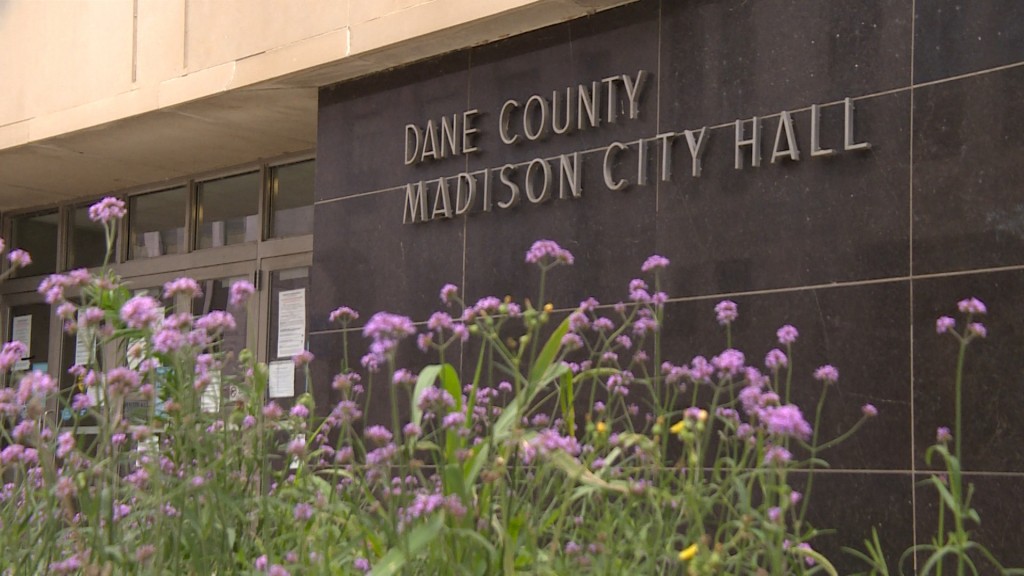
A new County Board subcommittee will look to address urgent healthcare workforce needs in response to data and personal accounts collected from frontline workers late last year.
The formation of the subcommittee was approved at the County Board’s May 26 meeting.
In an interview, County Board Supervisor and Health and Human Needs Committee chair Heidi Wegleitner said healthcare workers experience trauma and stress, and the newly established subcommittee could help alleviate this situation.
“The personal comments we got from nurses and health care workers was that they are really struggling with the workload challenges,” Wegleitner said, noting the disproportionate staff to patient ratio healthcare workers are currently facing. “It’s really hard for them to do their job because they’re covering so many patients. And then you add COVID to all of this, and the stress that poses, and the trauma and death that they are observing, it’s just really overwhelming.”
Aside from personal testimonies collected, Wegleitner also highlights a survey commissioned by SEIU Healthcare Wisconsin, which found that 85% of 920 Dane County healthcare workers surveyed felt like they were working in a warzone, 82% experienced depression or anxiety, 19% know a healthcare worker who has thought about suicide, and 30% are relying on substances to cope. These alarming statistics are a product of staffing shortages and lack of resources that affect the mental health and wellness of healthcare workers, especially workers of color, ultimately affecting their quality of work.
“I can’t think of a time when home healthcare workers or CNA’s were adequately compensated for the incredibly important work and care that they’re doing for people,” Wegleitner said. “Black, Indigenous, and people of color are more likely to be in these lower paid positions. So this absolutely is an equity issue and we need to recognize the problem that has existed … long before the pandemic, but it really was made worse by the pandemic.”
The Health Care and Public Health Workforce Needs Subcommittee is a step towards starting the conversation on creating an equitable work space for healthcare workers to continue to give Dane County patients quality treatment and care, Wegleitner said. The subcommittee, whose members are government workers, employers, and advocates, will meet four times and will present their recommendations to the HHN Committee at the fourth and final meeting on August 11. These recommendations will focus on the resources needed to support the well-being of healthcare workers, including resources for outreach, education, recruitment, retention, wellness, and other incentives to help with the workforce crisis.
With its supervisors, which include Mike Bare, Personnel and Finance Committee of the Dane County Board of Supervisors, Kierstin Huelsemann, Health and Human Needs Committee of the Dane County Board of Supervisors, and Holly Hatcher, Board of Health for Madison and Dane County, Wegleitner hopes the subcommittee will help bring multiple perspectives to the table in order to achieve its goals. One of these goals includes working on outreach, in order to connect with neighbors, constituents, and the communities of color at large to give input on the situation by sharing their experiences, ideas, and solutions at a public hearing in July.
The subcommittee’s public hearings and meetings will help with the structure of Dane County’s budget process, and its potential use for American Rescue Plan Act Funds to support programs that will attend to the needs for trauma recovery on both the individual level of healthcare workers and the community level. Wegleitner also mentions the importance of the subcommittee’s focus on how to diversify the workforce to be able to support communities of color through representation in different aspects of the workforce.
“I think part of that work for us, sort of analysis, and training, and retention work absolutely needs to be focused on equity, and eliminating disparities and understanding, like, where opportunities exist, and where opportunities have been denied,” Wegleitner explains. “Making sure that we are doing more to diversify, you know, nursing, and physician assistants, and doctors. Right now, not having that diversity, obviously, is very negatively impacting the health of communities of color.”



